Strong currents

Image Source: Reddit
While swimming in the sea can be a delightful and invigorating experience, there are certain risks and reasons that might deter individuals from taking a dip. For example, powerful ocean currents can pose a danger to swimmers, potentially pulling them away from the shore.
Rip tides
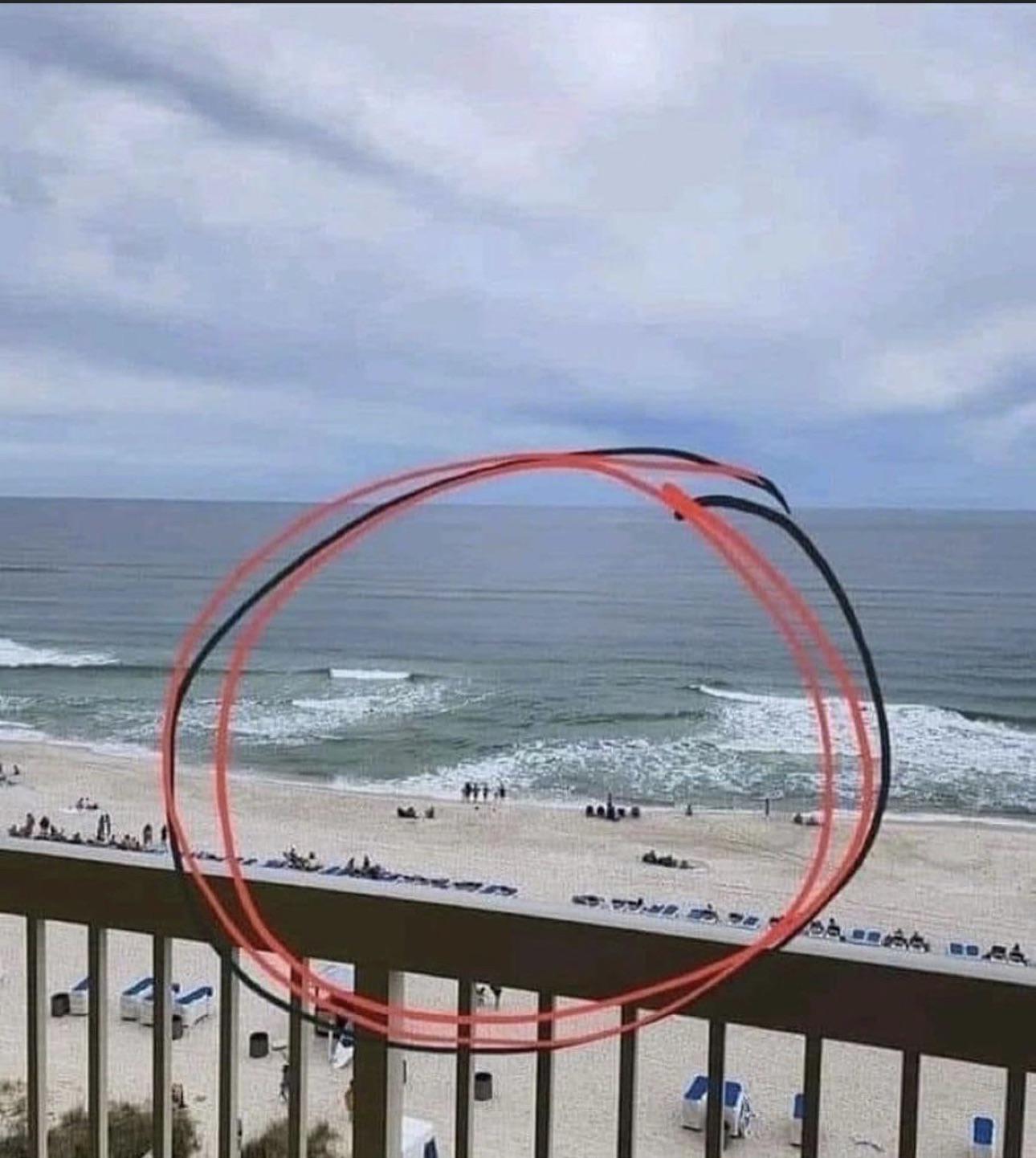
Image Source: Reddit
Rip tides are another common danger at sea, as they can be difficult to spot. They can also swiftly carry swimmers out to sea, making it challenging to return to shore. Rip tides can affect even the most experienced of swimmers, so it is important to be aware of any changes within the water.
Marine life
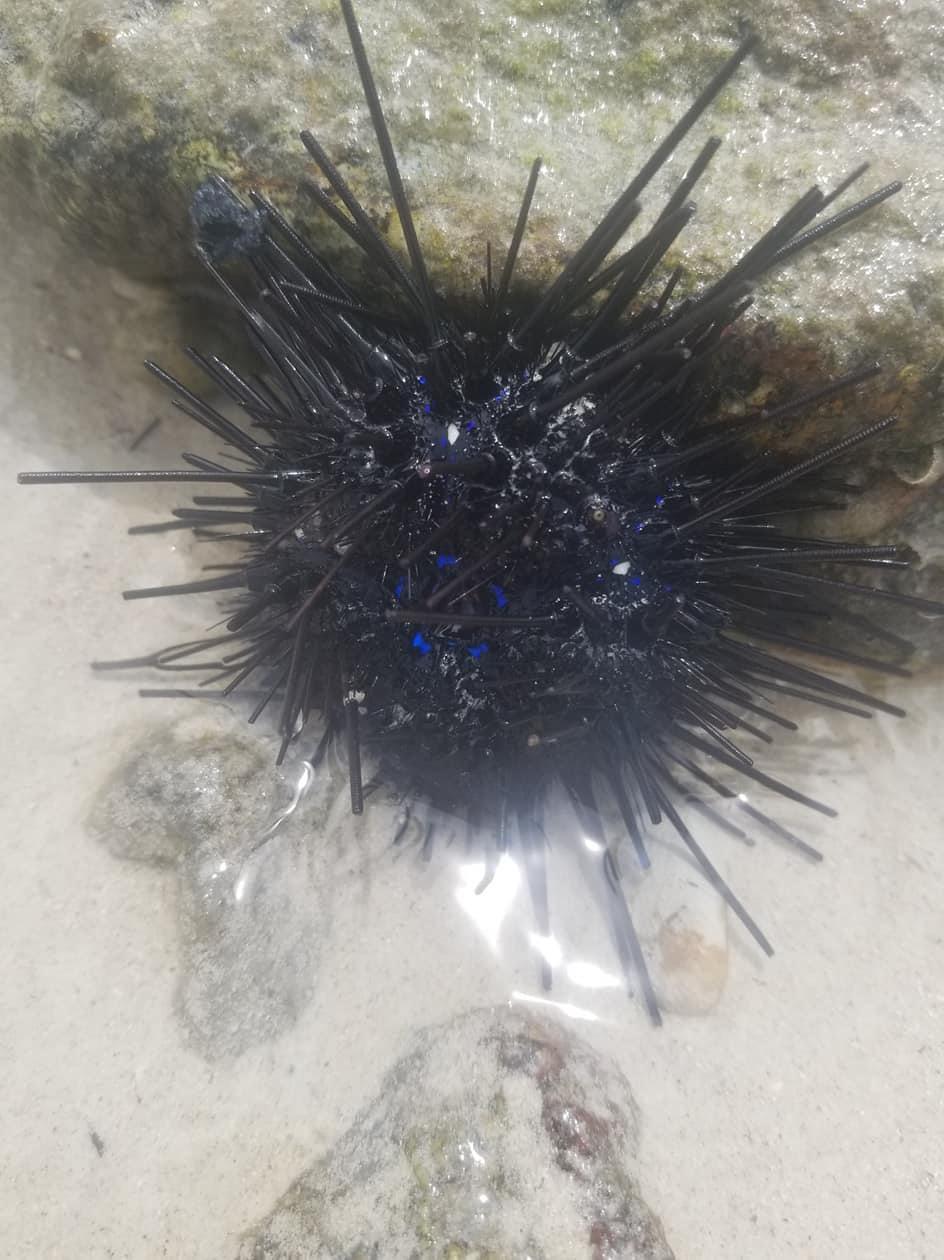
Image Source: Reddit
There are some species of marine life that can be harmful to swimmers, such as: jellyfish, sea urchins and sharks. Obviously, these creatures are not found within every body of water, but it is important to be aware of any potential animal-based threats.
Water pollution

Image Source: Reddit
Pollution, including sewage and debris, can contaminate the sea and pose health risks to swimmers. Water pollution is harmful to the local wildlife as well, which adds to the overall level of contamination. If you suspect that a body of water is polluted, you should avoid it and inform the local authorities.
Waterborne diseases

Image Source: ACS Publications
Relating back to the last point, swimming in polluted water can expose swimmers to various diseases and infections. These waterborne diseases can be transmitted just through contact with the contaminated water, but they can also be contracted via accidental consumption.
Rough seas
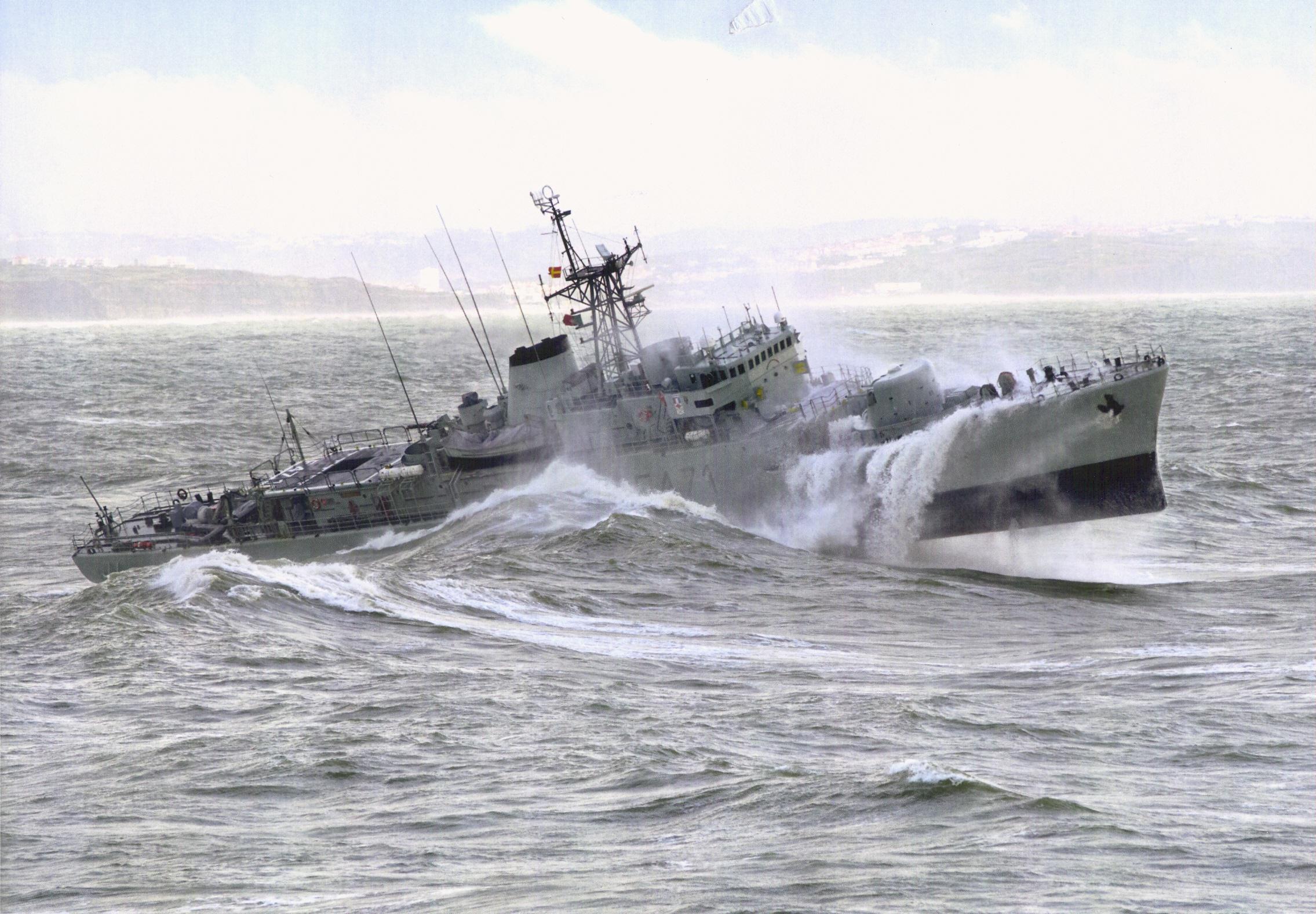
Image Source: Reddit
Stormy or choppy conditions can make swimming in the sea hazardous. This is due to the unpredictability of the water e.g. how rough the water is, increase in rip tides, the water's direction and temperature. Swimming within rough sea water, should be avoided at all costs.
Cold water
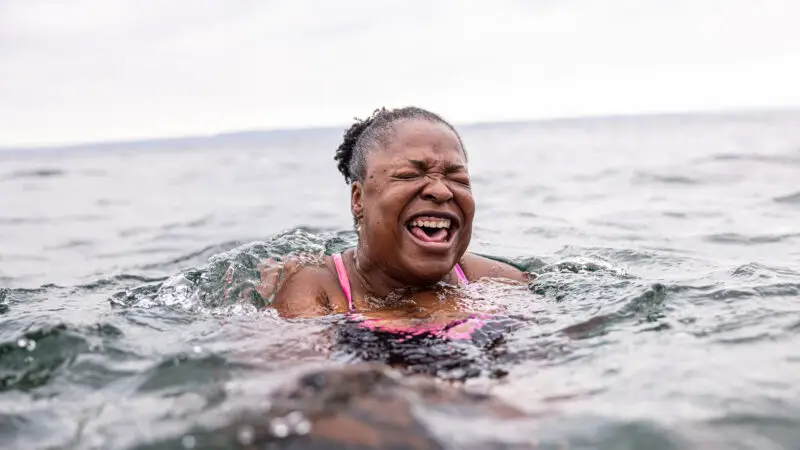
Image Source: WBHM
Within some areas, the sea can be frigid, which may not be suitable for every swimmer e.g. the elderly, young children and people that suffer from pre-existing health conditions. Cold water is often underestimated by inexperienced swimmers, but it should be approached with caution.
Sunburn
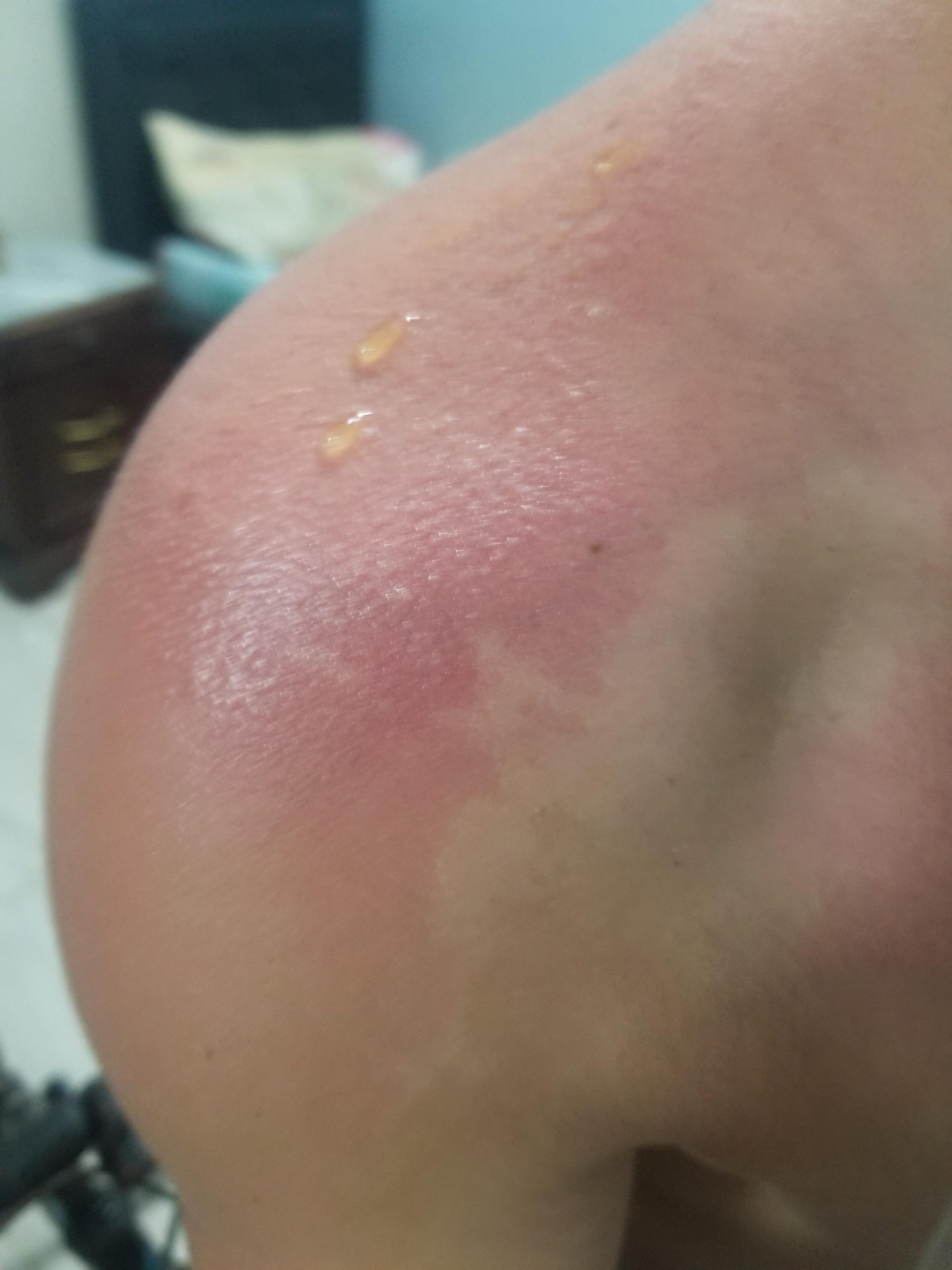
Image Source: Reddit
Excessive sun exposure while swimming, can lead to painful sunburn. This is due to the sun's UV rays being magnified, and strengthened through the water. You should always wear appropriate protection from the sun, especially if you're swimming and towelling dry.
Hypothermia

Image Source: Reddit
Back on the topic of cold water, prolonged exposure to cold water can cause hypothermia. Hypothermia is a potentially life-threatening condition, which can lead to severe injury, and (in some cases) death. Swimming within cold water, is something that is typically done by experienced swimmers.
Drowning

Image Source: Reddit
Drowning is the most common danger when swimming, whether it's within a pool or open water. Accidents can happen, and drowning is a significant risk for swimmers of all abilities, especially inexperienced or unsupervised swimmers. However, there are a range of things you can do, to prevent this from happening.
Unpredictable weather

Image Source: Reddit
Weather conditions can change rapidly at sea, leading to unexpected storms. Unpredictable weather is one of the leading causes of hazardous seas, and can be difficult to pick up on. If a weather forecast predicts some harsher weather conditions, it is best to avoid swimming.
Strong winds

Image Source: Reddit
Strong winds are a common part of unpredictable weather conditions, and can create rough waves within the sea. This increase of rough waves makes swimming more difficult. Strong winds also increase the risk of hypothermia, which can affect any swimmer (no matter their ability).
High waves
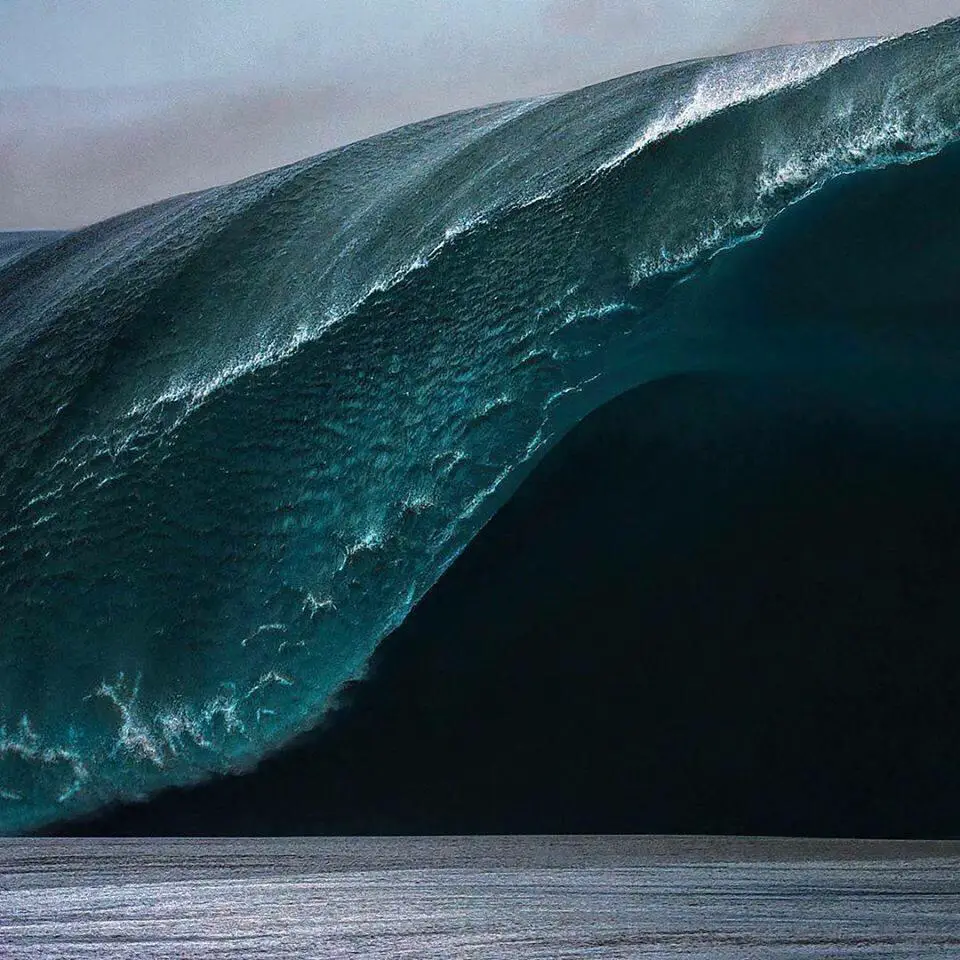
Image Source: Reddit
Large waves can be intimidating and dangerous for swimmers, as they are typically more dangerous. High waves are commonly stronger, in comparison to 'normal' waves, and they are completely unpredictable. They can push dangerous animals etc. closer to the shore (putting more people at risk).
Underwater hazards
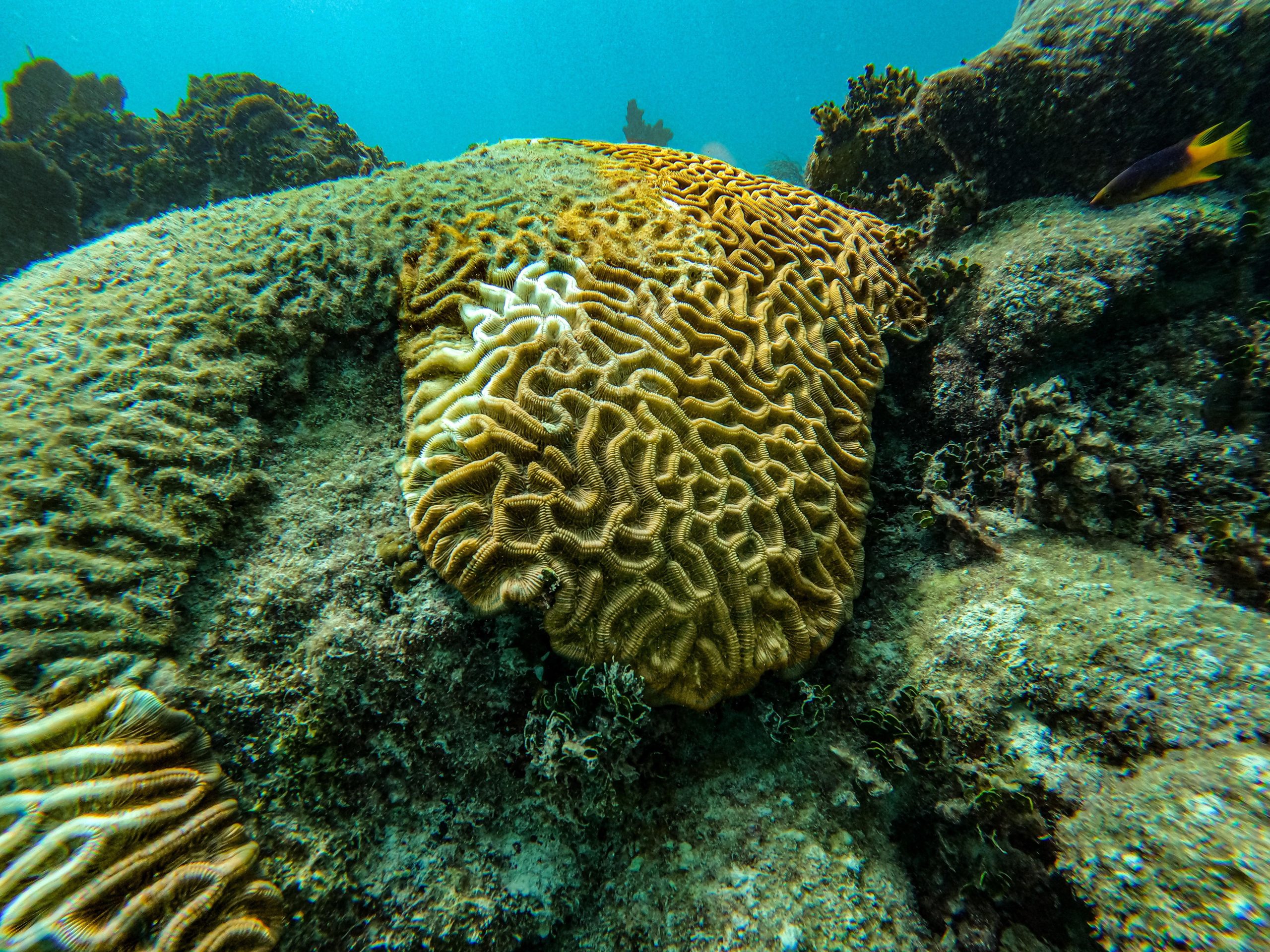
Image Source: Reddit
There are a range of underwater hazards when swimming in open water, such as: hidden rocks, reefs and underwater objects. These hazards can pose a threat to swimmers, as they are often disguised/hidden underneath the surface of the water. You should always remain aware of your surroundings when swimming.
Lack of lifeguards

Image Source: Reddit
The presence of lifeguards can vary from area-to-area, and many beaches do not have lifeguards. This leaves swimmers without immediate assistance, in case of emergencies. If there are lifeguards present, there will typically be a cordoned area that is deemed 'safer' to swim within.
Inexperienced swimmers
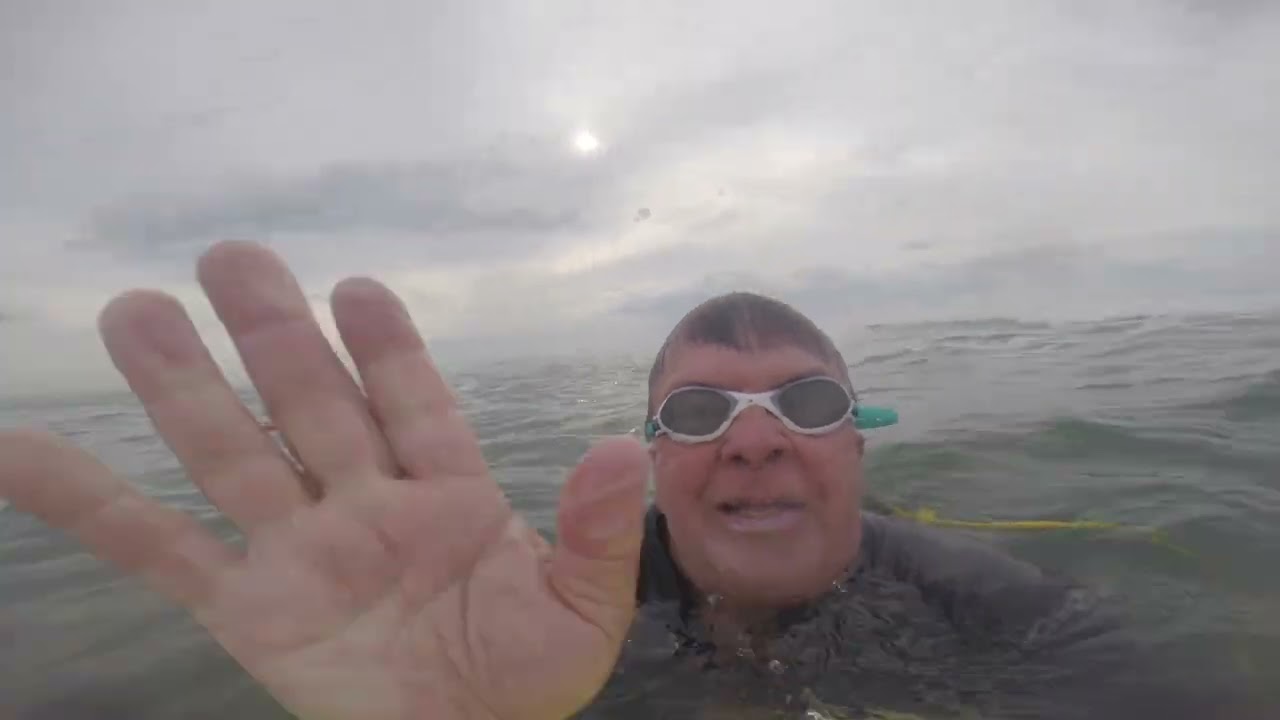
Image Source: Reddit
Everyone has a different ability when it comes to swimming, which can lead to accidents. Weaker, inexperienced swimmers are more likely to succumb to dangerous conditions, as they tend to panic and lose control with the unpredictable nature of the sea.
Rip currents
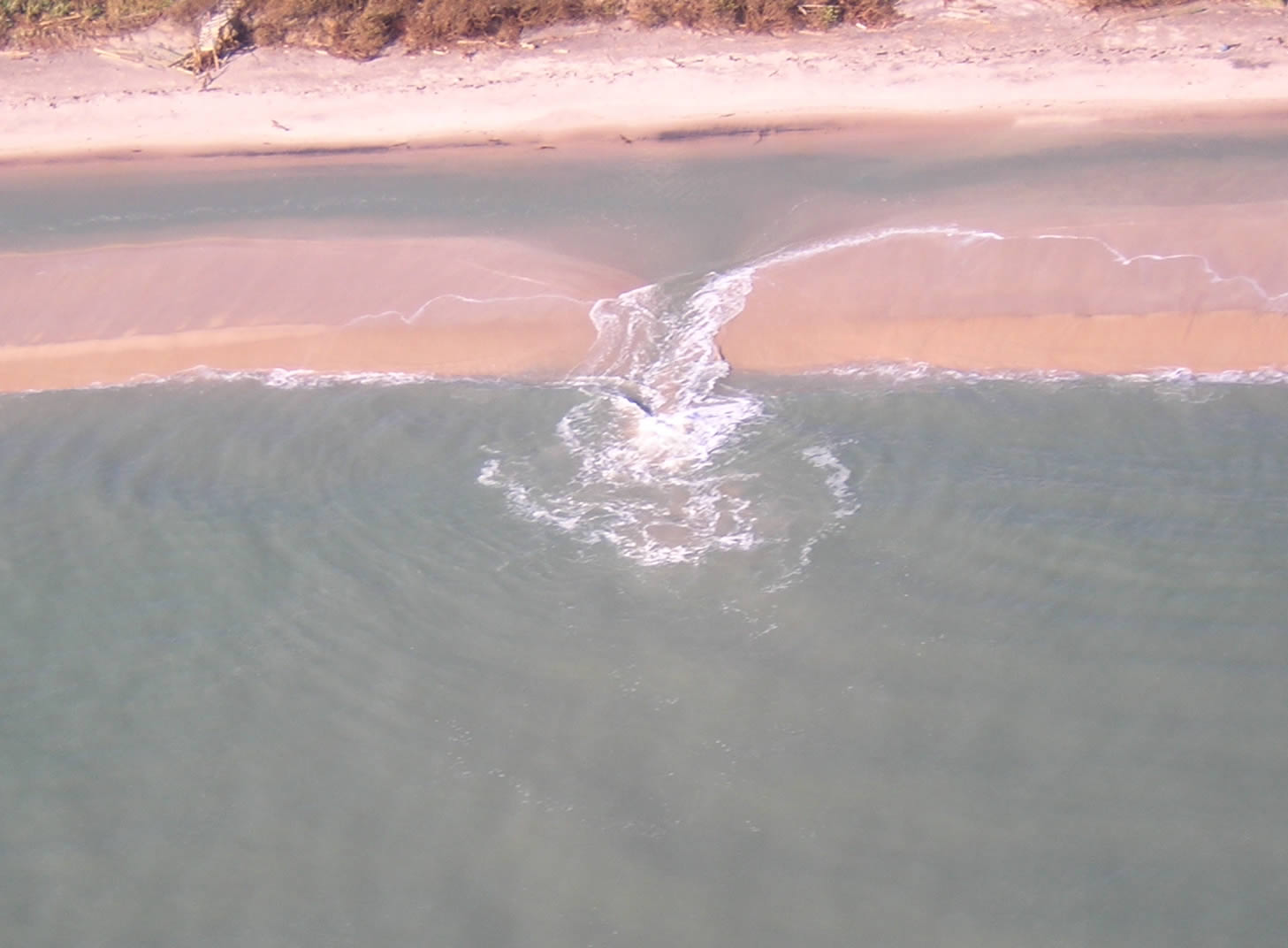
Image Source: Live Science
Rip currents can cause swimmers to panic, increasing the risk of injury and drowning. Similarly to rip tides, rip currents can be difficult to spot, and can range in severity. Changes in weather can also affect the presence and severity of rip currents.
Salt water
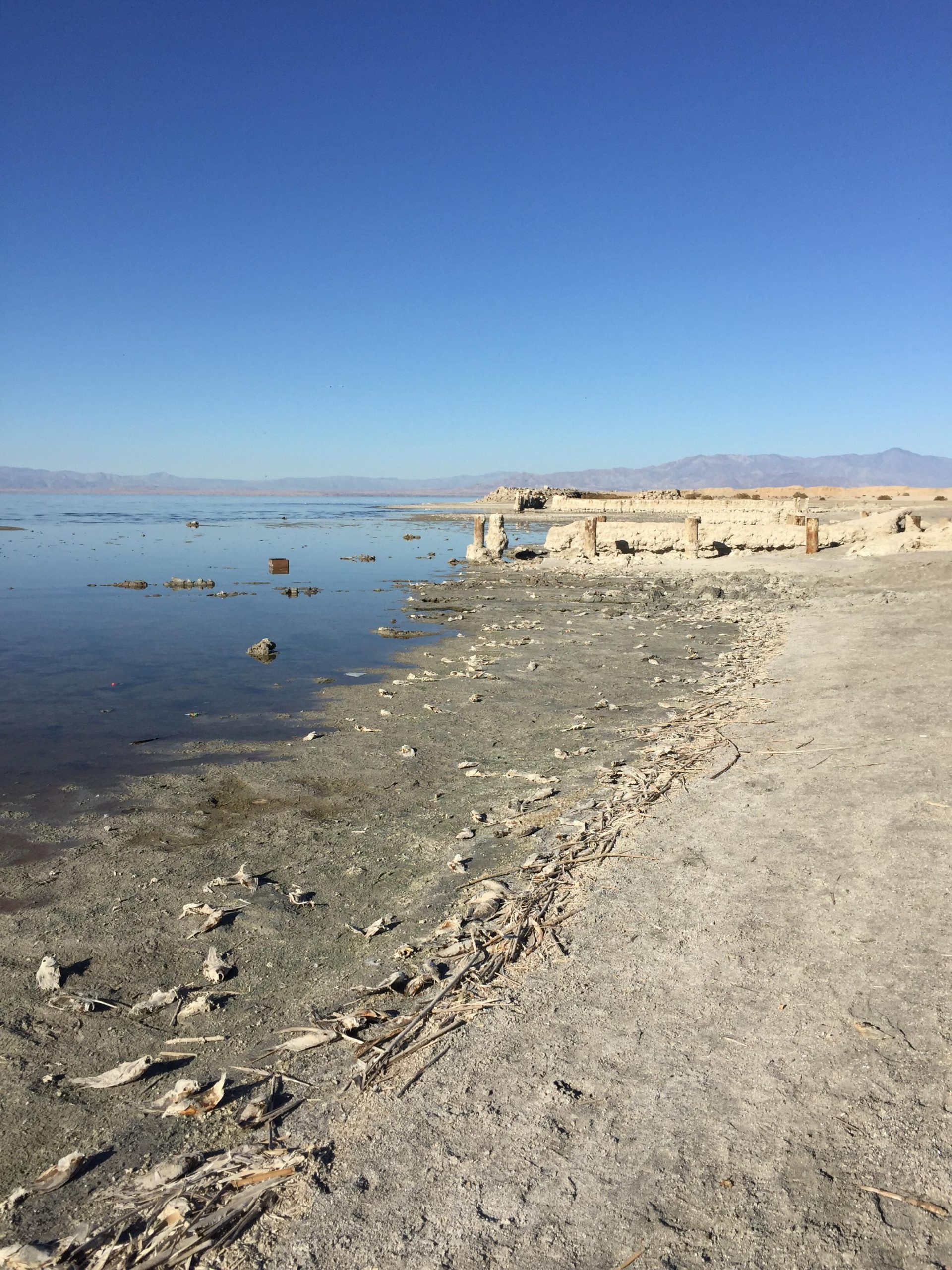
Image Source: Reddit
Salt water can irritate your eyes and skin, so it is important to take necessary precautions before visiting the sea. If you have overly sensitive skin, it is advisable to avoid immersing your whole body into seawater. The best way to deal with irritation, is by flushing the affected area with clean (bottled) water.
Watercraft traffic
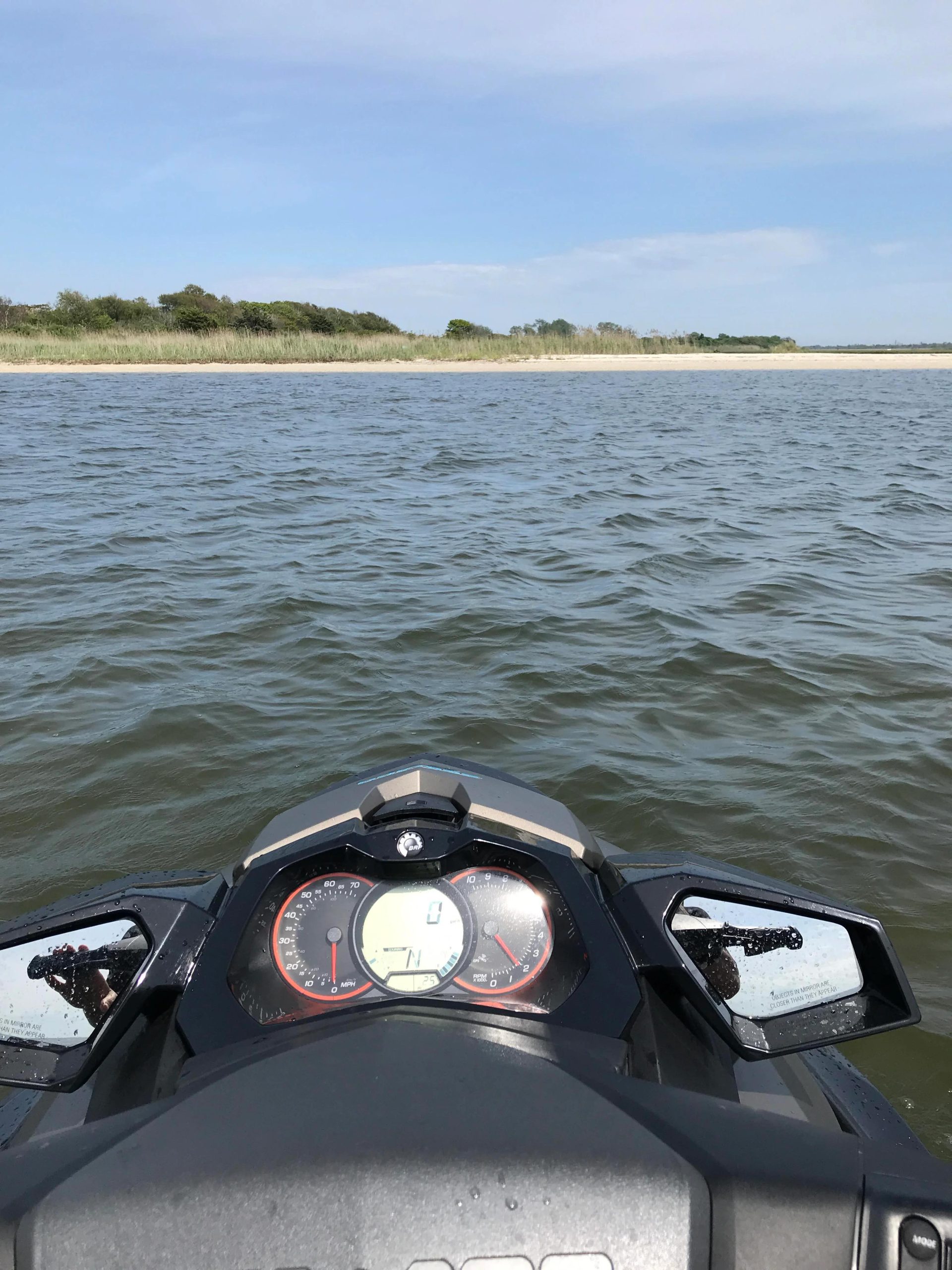
Image Source: Reddit
Watercraft traffic, is in reference to the presence of boats and jet skis within open water. Swimmers may be at risk of colliding with this traffic, especially if the area is dense with boats and/or jet skis. If it is clear that these vehicles present, it is important to find another area of water to swim within.
Trash and debris
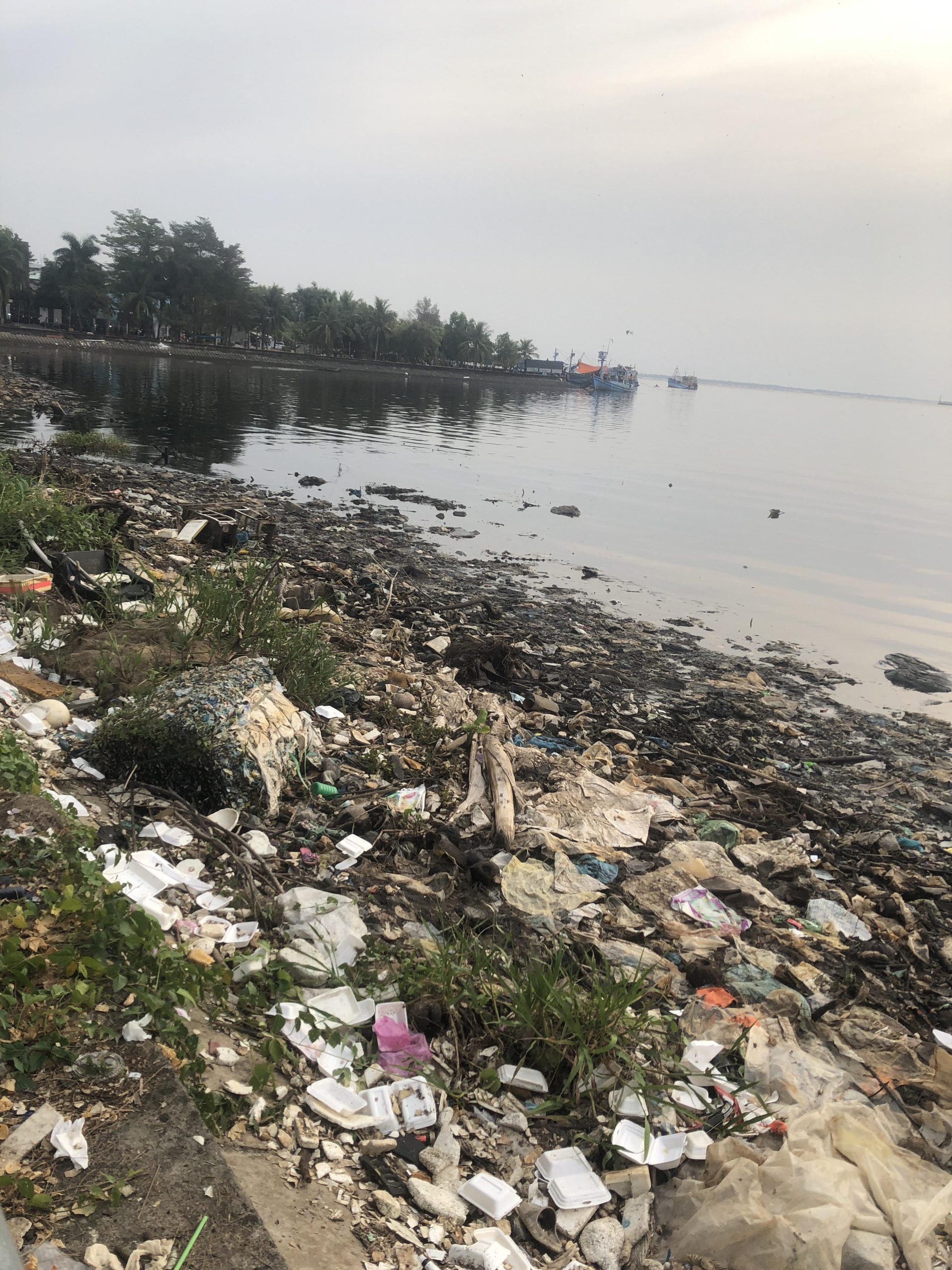
Image Source: Reddit
Floating debris can be both unsightly and hazardous to swimmers. Debris can take on different forms, and will depend on the area you're swimming within. For example, some areas of the sea may be home to natural debris e.g. seaweed, sea foam, dead marine life etc.
Sunken ships
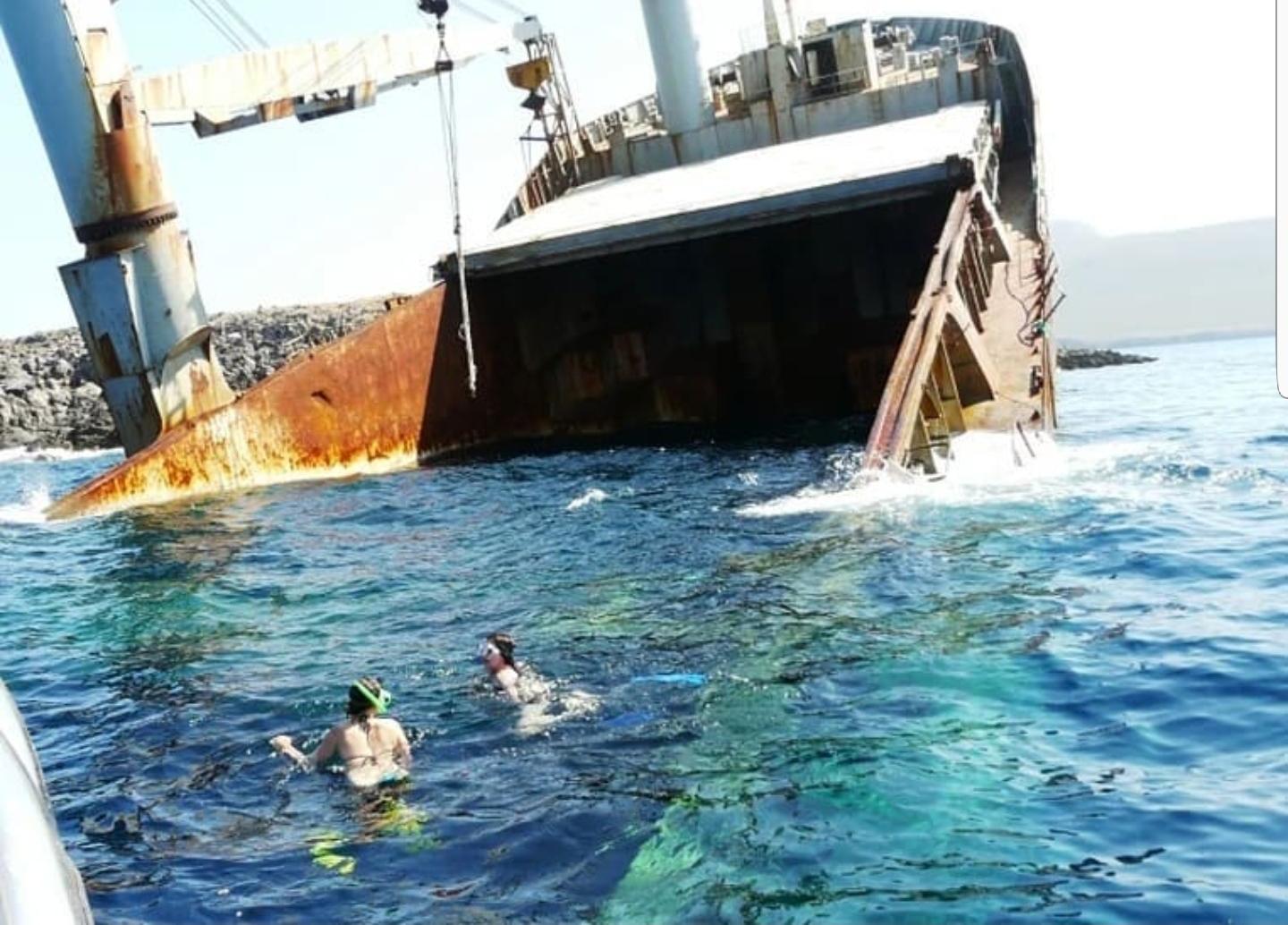
Image Source: Reddit
In some areas, sunken ships or structures may pose dangers to swimmers. These sunken ships/structures are commonly disguised under the surface of the water, so their presence isn't noticed straight away. However, there are times when these sunken objects protrude from the water.
Ocean predators
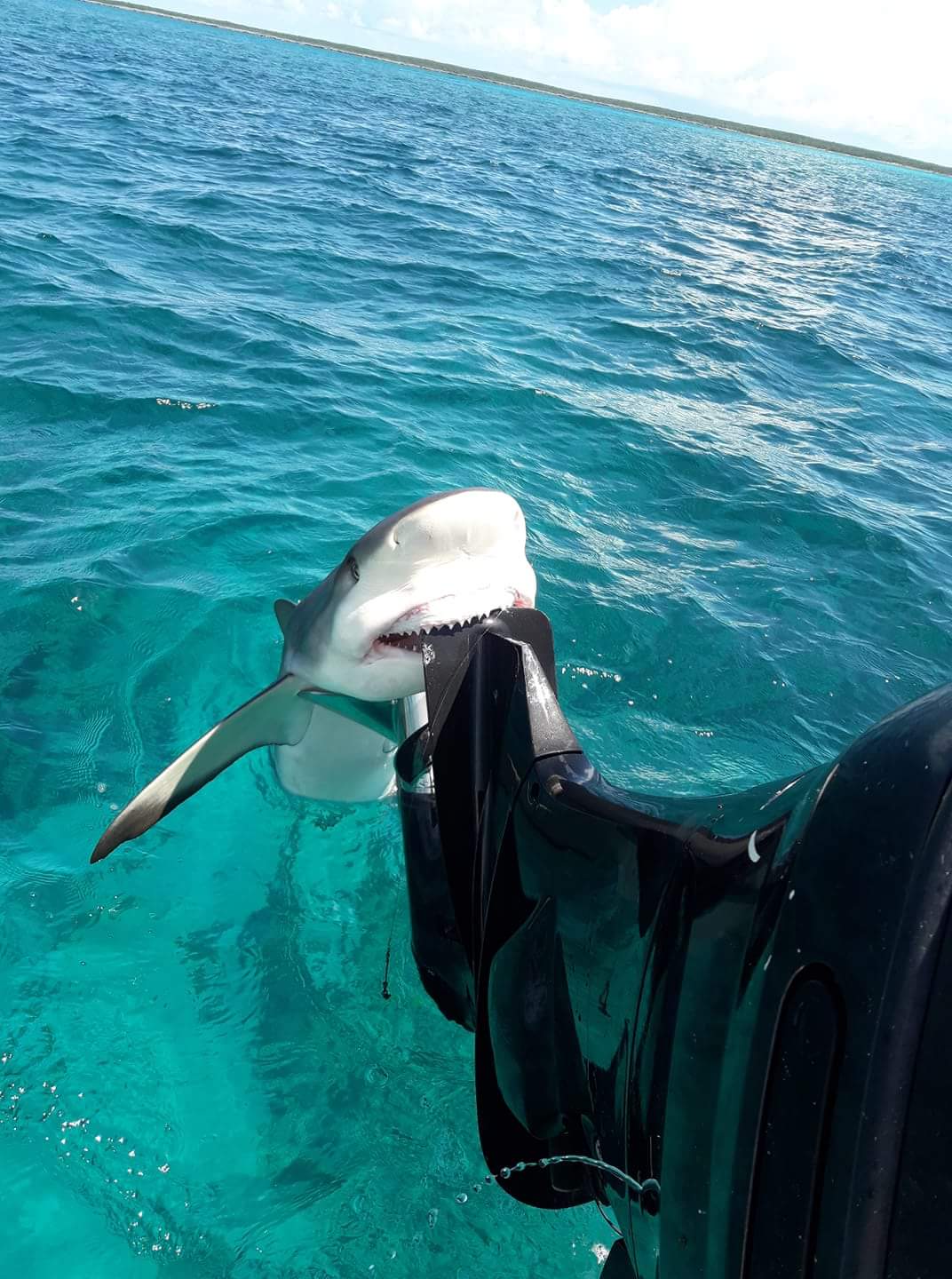
Image Source: Reddit
As mentioned previously, there are some bodies of water where marine life poses a threat to swimmers. Sharks are one of the most common species of marine life, and while shark attacks are rare, they are a common phobia for a lot of people. It is best to avoid areas of water that sharks reside in.
Pollution runoff
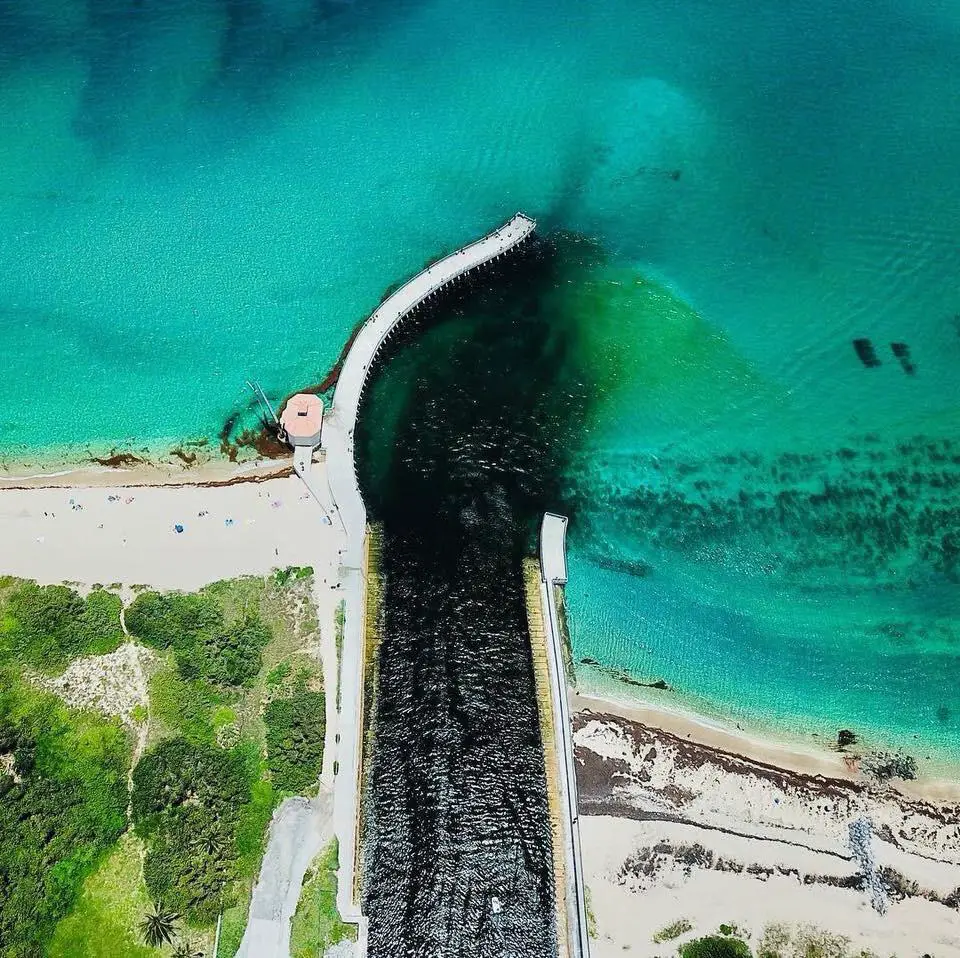
Image Source: Reddit
Rainwater can carry pollutants from the land into the sea, which affects water quality. Over time, this pollution can worsen, and lead to the development of waterborne diseases/viruses. As mentioned previously, being immersed within this kind of water can pose serious health risks.
Jellyfish stings
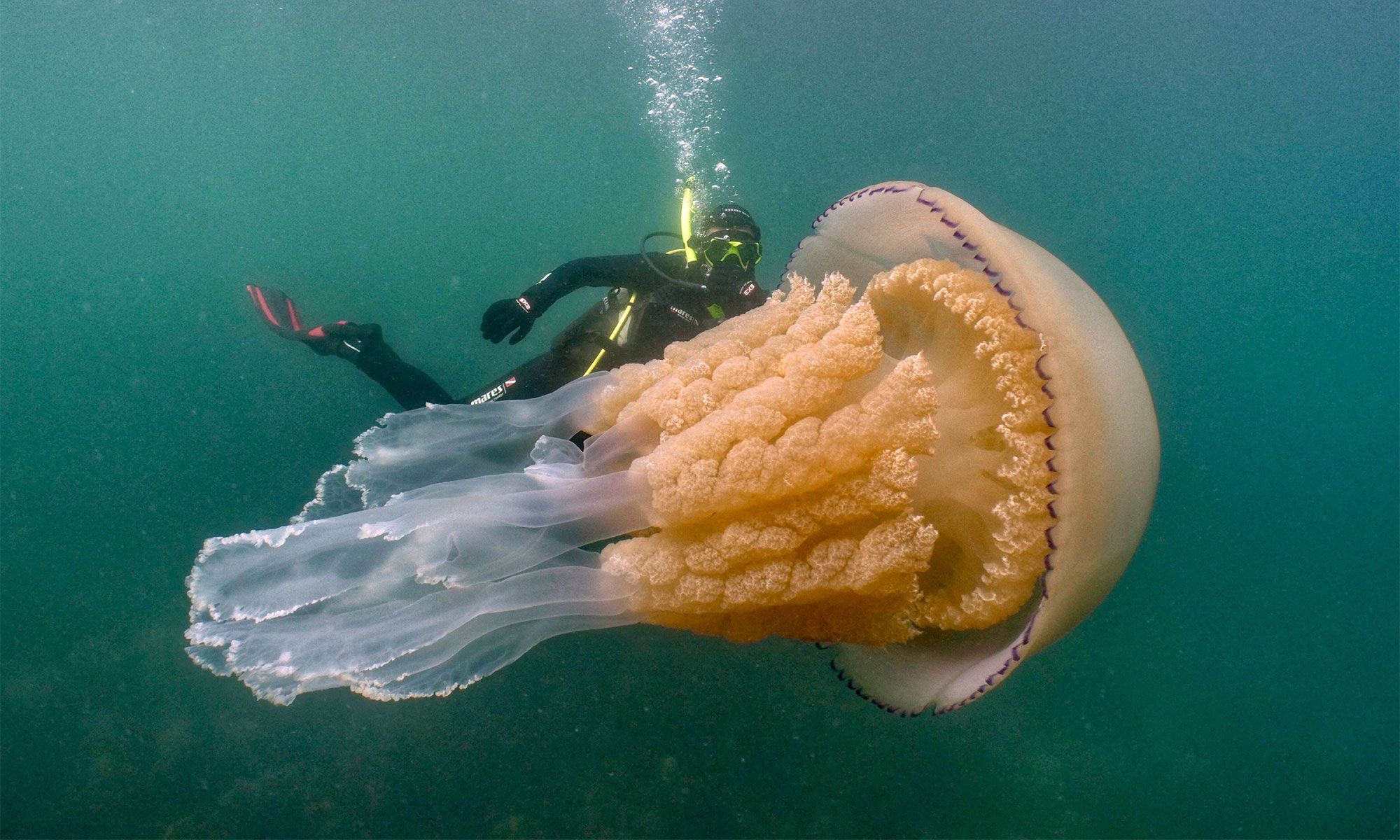
Image Source: Reddit
Jellyfish are a common species of marine life, and there are some species of jellyfish that can deliver painful stings. These stings can vary in severity, with some causing mild irritation, and others leading to potential paralysis. There are a range of remedies that can be used against these stings e.g. pouring urine on the affected area.
Isolation
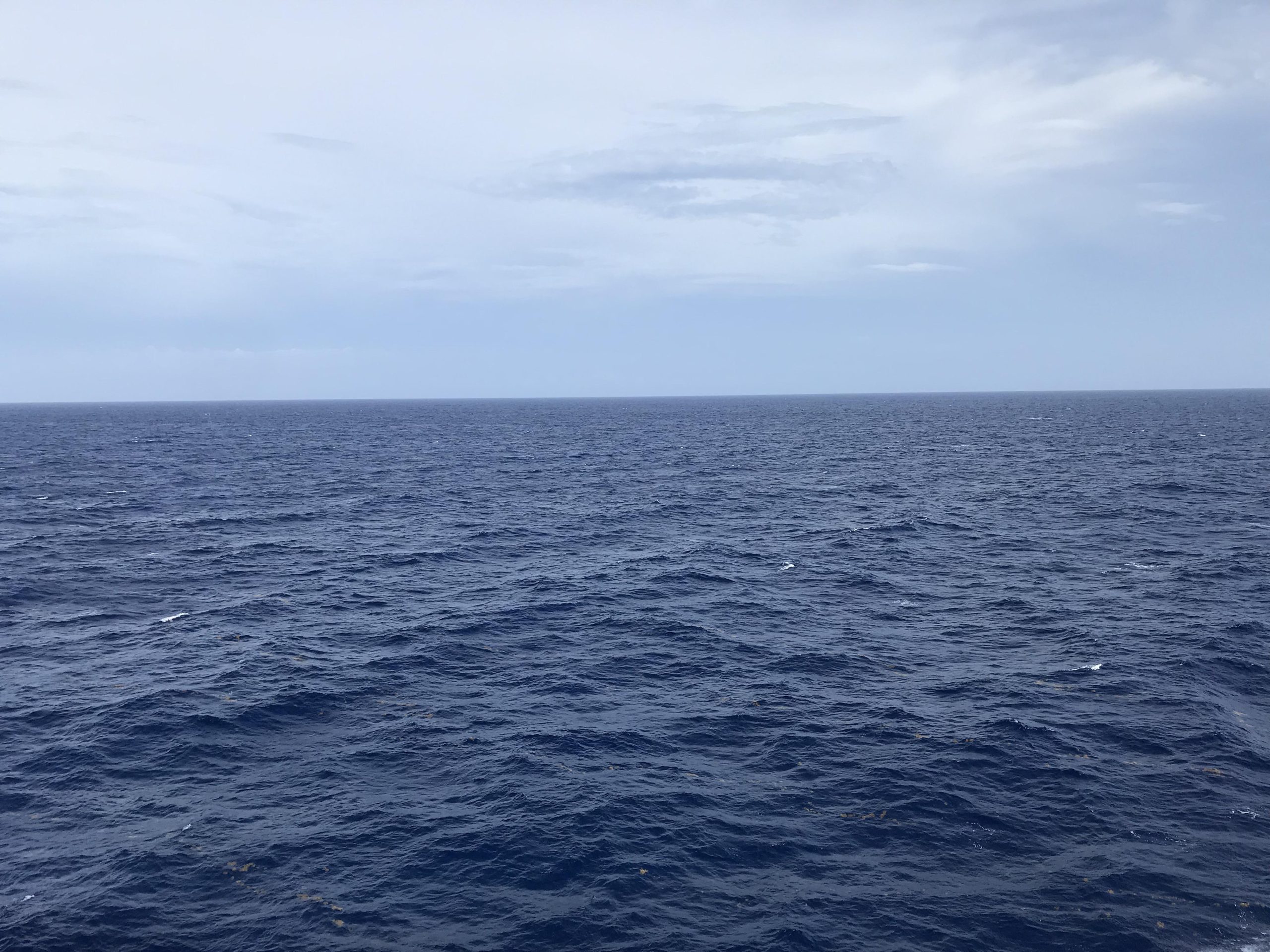
Image Source: Reddit
Isolation is one of the most dangerous (potential) risks that swimmers may face. Swimmers may find themselves far from help, within remote and/or weakly patrolled areas. Isolation can be a panic-inducing experience for any swimmer, and can lead to severe injury or death (in some cases).
Inadequate first aid resources
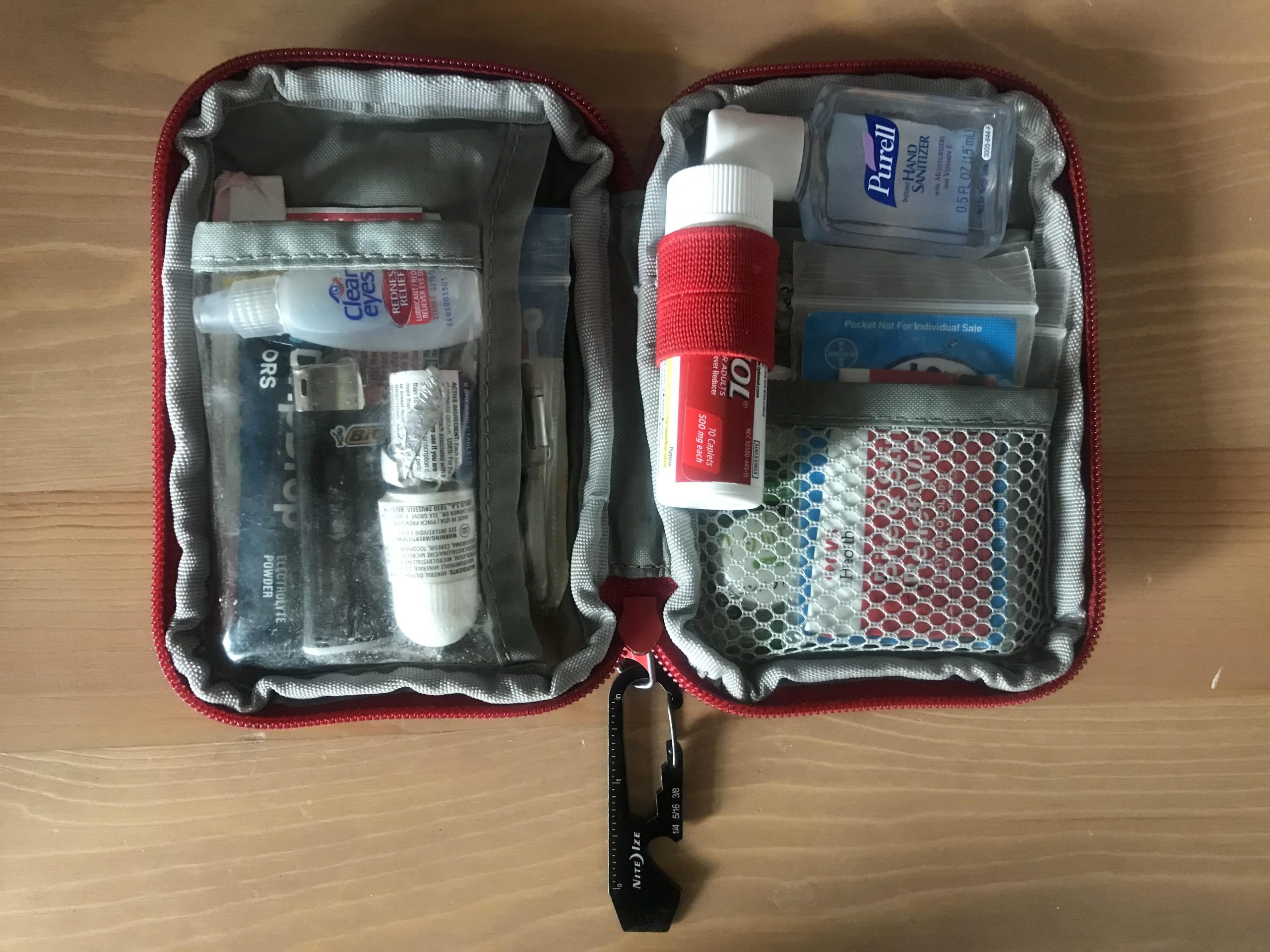
Image Source: Reddit
In case of an emergency, access to medical assistance may be limited on some beaches. Before visiting certain areas, it is best to see if there is some kind of access to medical assistance. You should also carry a small first-aid kit with you, for patching up smaller injuries.
Algal blooms
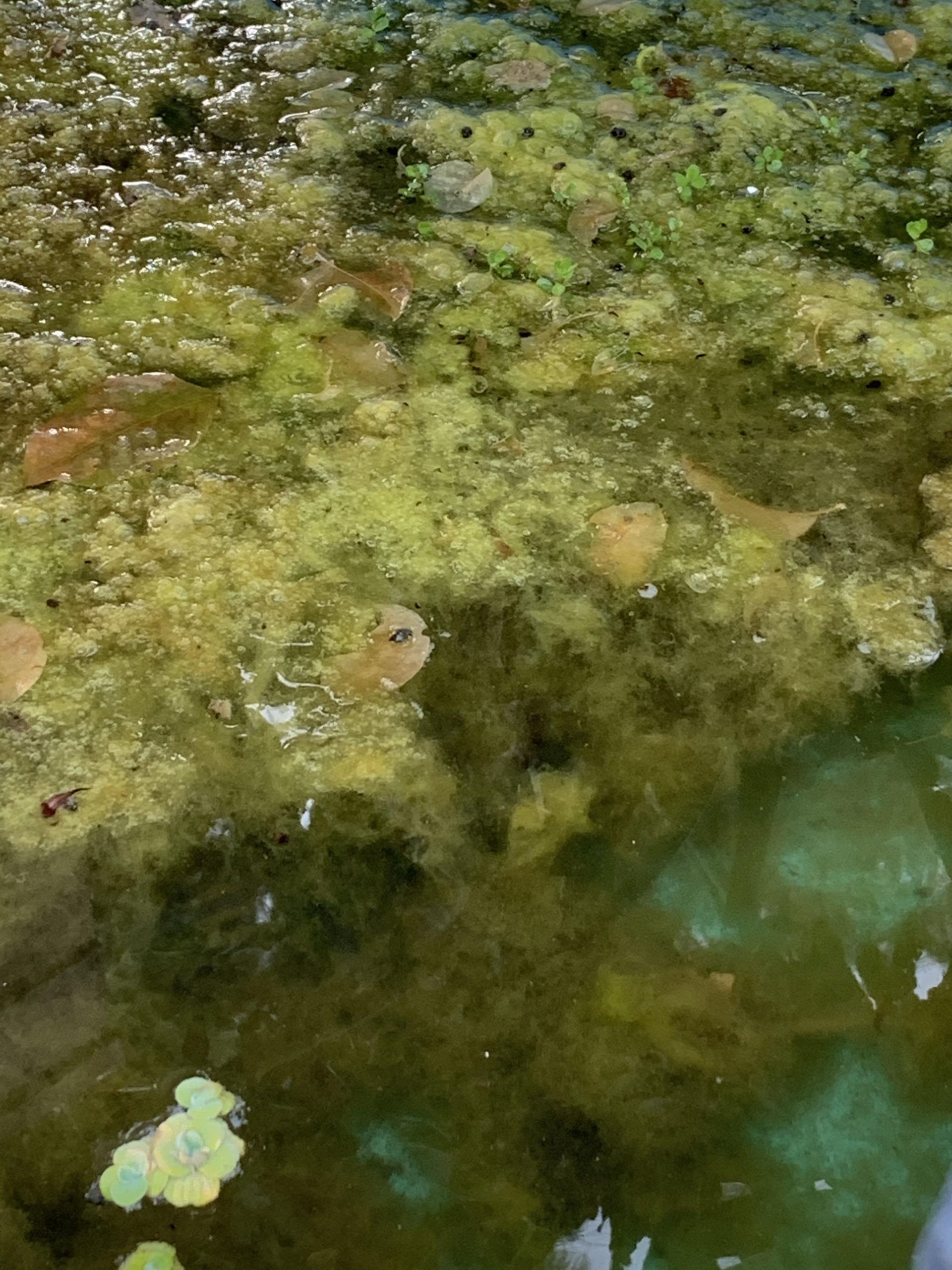
Image Source: Reddit
There are some algal blooms that are harmful, and produce toxins that affect marine life and swimmers. These algal blooms can take on different shapes, sizes and colors; with some types only occurring within certain areas e.g. tropical algal blooms. They can also be difficult to spot, so watch out!
Personal fears/phobias
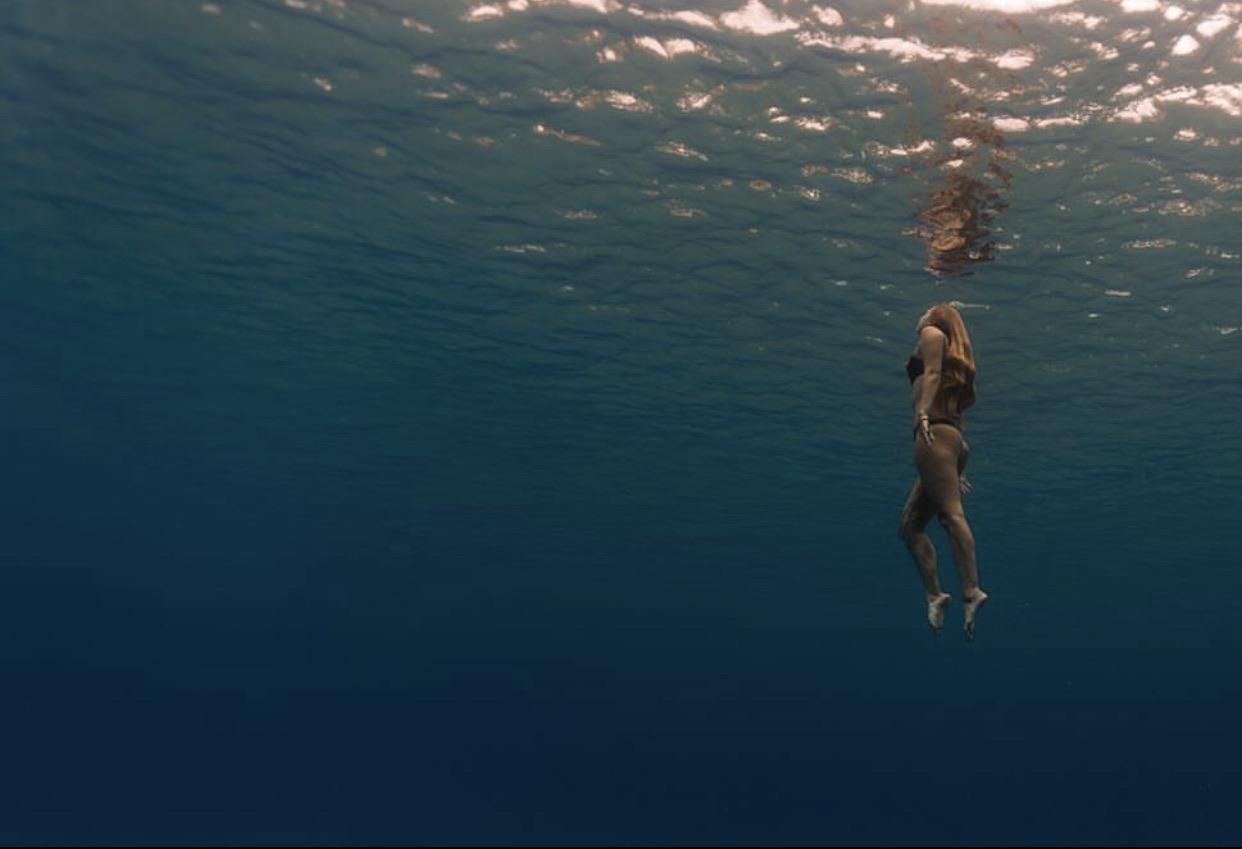
Image Source: Reddit
Some individuals have specific fears of the ocean, which can make swimming in the sea uncomfortable. These phobias can be extremely debilitating, and restricts people from being able to fully enjoy the experience of swimming in the sea/visiting the beach in general.
Poor depth gauge
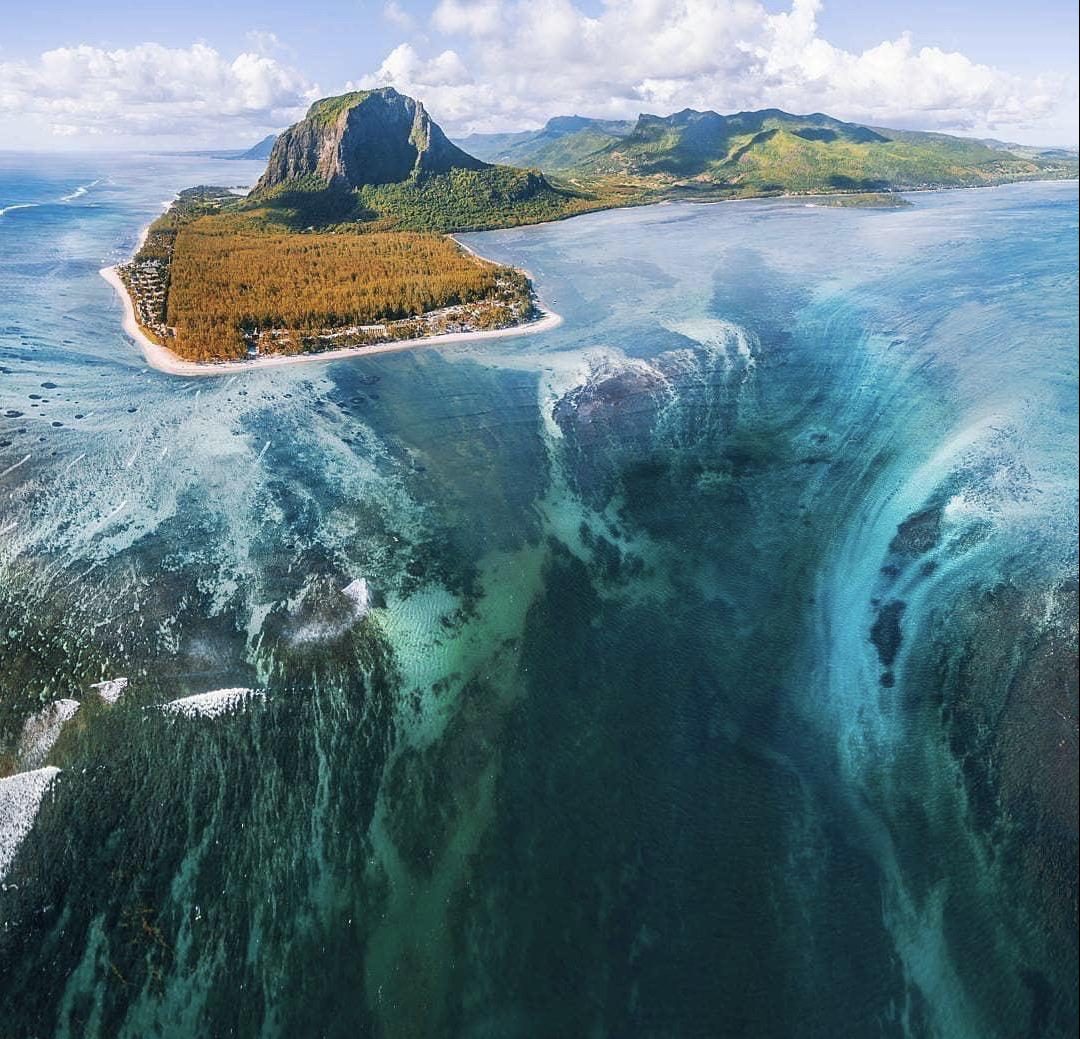
Image Source: Reddit
Poor depth gauge refers to a person's inability to assess the depth of the water around them. This is common when high tide is present, as the level of the water makes it difficult to assess any difference in the seabed/general footing beneath a swimmer.
Potential natural disasters

Image Source: Reddit
Natural disasters take place all over the world, and the majority of them involve some form of water e.g. typhoons, tsunamis and flooding. This is another potential danger when swimming, especially the occurrence of tsunamis. Tsunamis consists of huge tidal waves crashing into land, but the signs of a tsunami can be difficult to spot.





























